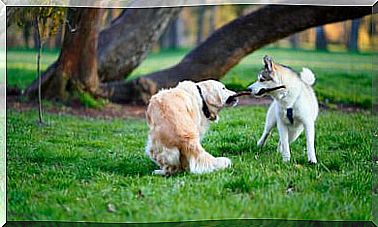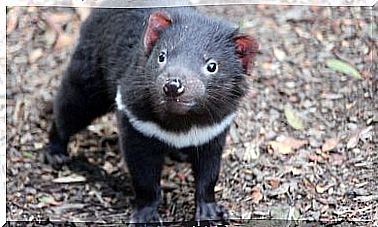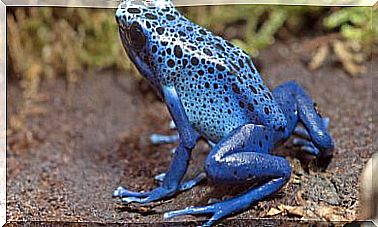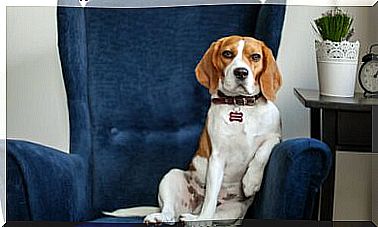The Dog’s Need To Sleep

Our furry friends are cute sleepers. In addition to the hours of sleep at night, they also usually take their good naps. And it is that the dog’s need to sleep is greater than that of the human and requires more than 50% of each day.
How much do dogs sleep?
We tell you some information about the sleep of dogs. On average:
- They require between 12 and 14 hours of rest.
- An adult animal sleeps between 8 and 9 hours each night.
- The rest of the time they spend sleeping is divided into several “naps” throughout the day.
- Daytime sleep is usually lighter and more vigilant, since they wake up easily to the stimulation of any of their senses.
Different needs for hours of sleep
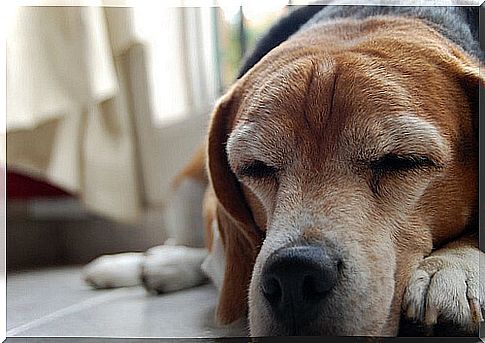
The number of hours a dog sleeps varies based on age, size, and physical activity. For instance:
- The larger the animal, the longer it needs to rest.
- Puppies use a lot of energy, therefore they will spend the day sleeping and feeding.
- Giant breeds and puppies need up to 18 hours of sleep.
- Elderly dogs, given their physical and mental wear, require more hours of sleep.
More information on the dog’s need for sleep
For dogs it is essential to sleep well. And your hours of sleep must be of quality.
Your pet will enjoy a good rest if he performs adequate physical and mental activity during the day. So, in addition to providing walks and exercises, you should stimulate his brain with an interactive toy or an intelligence game.
Keep in mind that the more activity your furry displays, the higher the quality of rest.
Dogs dream too
The sleep phases of dogs are similar to ours, although the REM stage only lasts 10% of the cycle (in people it usually extends up to 25%).
And, like humans, dogs dream and even have nightmares. You can notice those moments because:
- They move their legs.
- They moan.
- They bark.
- They grunt.
- They lick.
- They lift their ears.
But, in addition, dogs also snore, especially those of brachycephalic breeds, whose airways are narrow and have a flat nose. This is the case of Bulldogs or Shih Tzu.
Sleep disorders in dogs
Our four-legged friends can suffer from sleep disorders just like people. For instance:
- Insomnia. It can be due to causes such as rheumatism, breathing problems, anxiety or depression.
- Apnea. These are altered breathing patterns, where it is interrupted or becomes very shallow.
- Narcolepsy During a narcoleptic episode, the animal may collapse on its side or face down. He loosens his muscles and ceases all physical movement, as if he has suddenly fallen into a deep sleep. They are short-lived events and the dog wakes up immediately as if nothing had happened.
Excess and lack of sleep in dogs
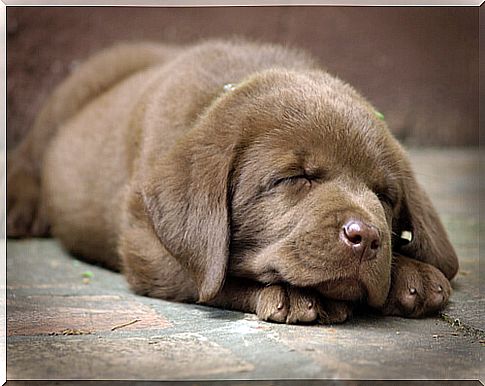
If your furry friend is not getting enough sleep, he can become irritated and even stressed, if the lack of sleep becomes persistent.
On the contrary, if the animal sleeps more than normal, it may have a health problem, such as depression, or even distemper or parvovirus.
Given these anomalies, it is important that you take your dog to the vet.
Ensure a good rest for your pet
Since rest is so necessary for our four-legged friend, it is important to find a suitable place for him. Your pet deserves:
- A place that you can consider as your own and thus feel safe.
- A comfortable bed, according to its size.
- A space free of drafts, but ventilated.
- Have the right temperature to have a restful sleep.
Benefits of a good night’s sleep for your dog
The dog’s need for sleep must be respected to ensure a good quality of life.
An animal that rests properly will be in good physical and mental health. This translates into:
- Hair soft, shiny and in abundance.
- Well hydrated skin.
- Good mood.
So give your pet the necessary hours of sleep and teach children that they should not interrupt those moments that their furry friends choose to rest.
